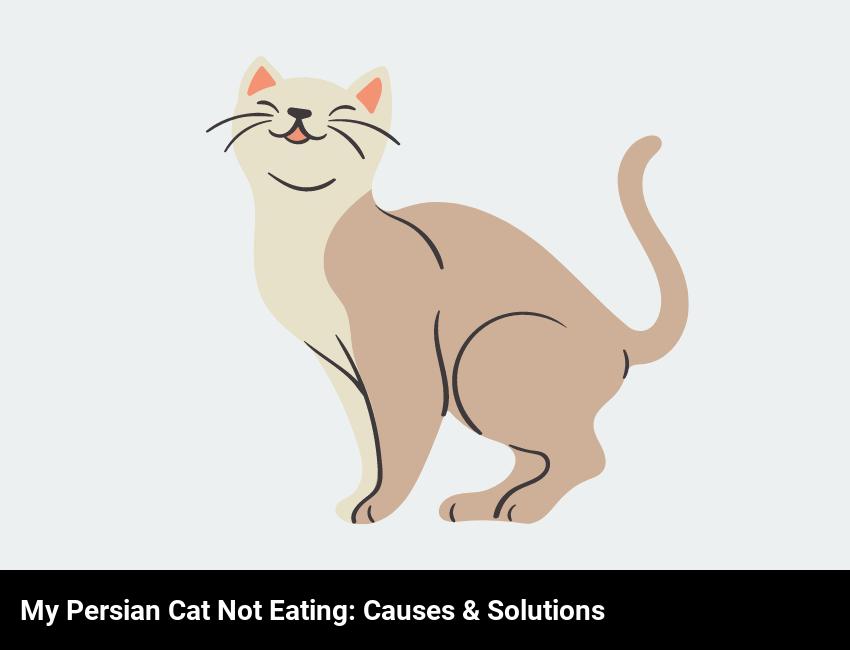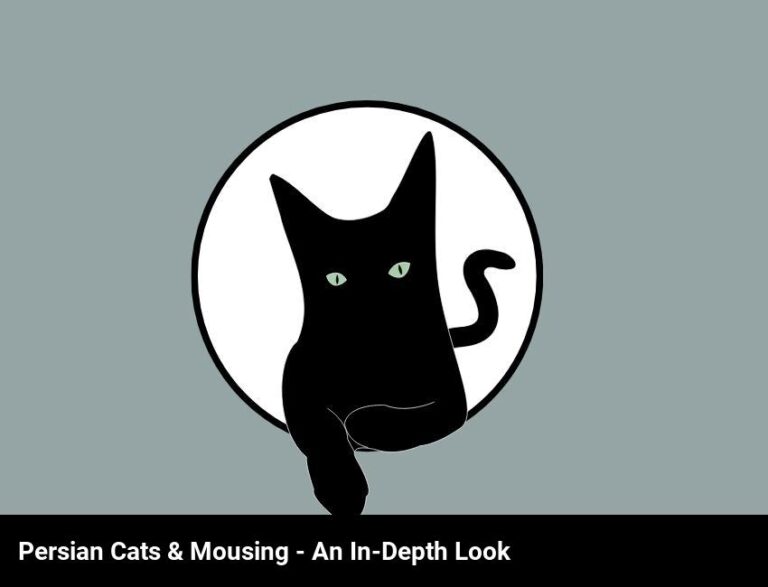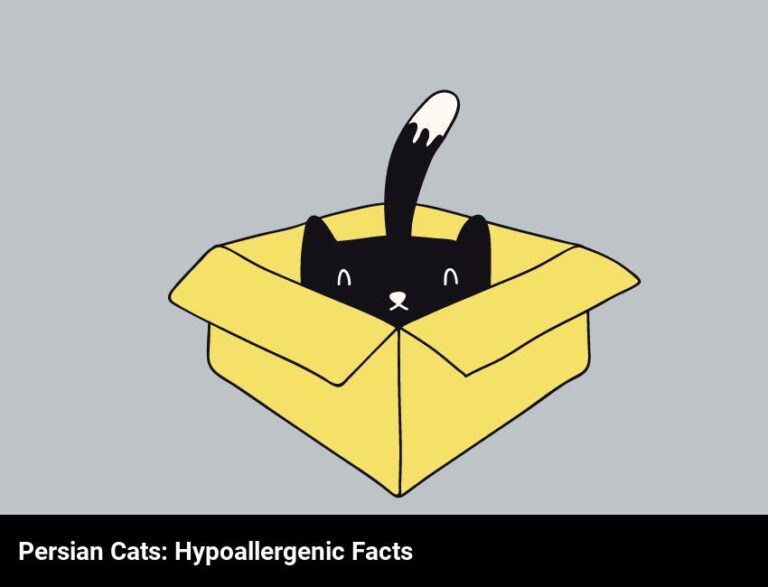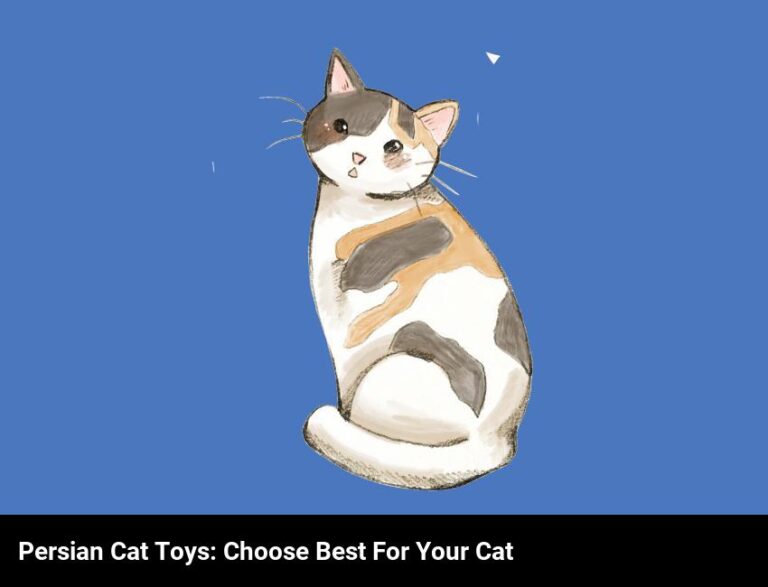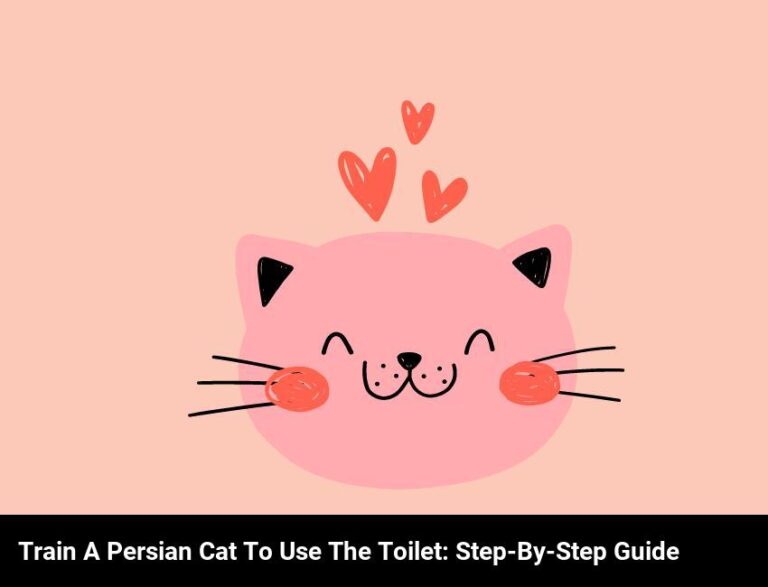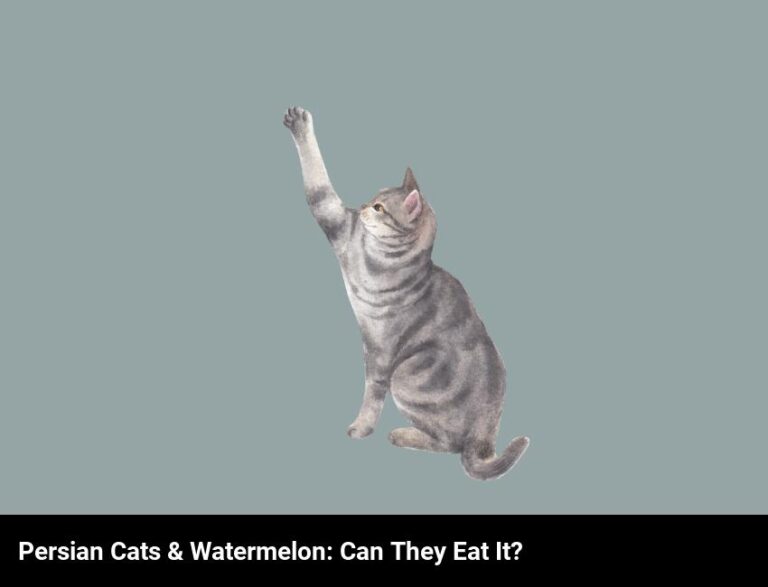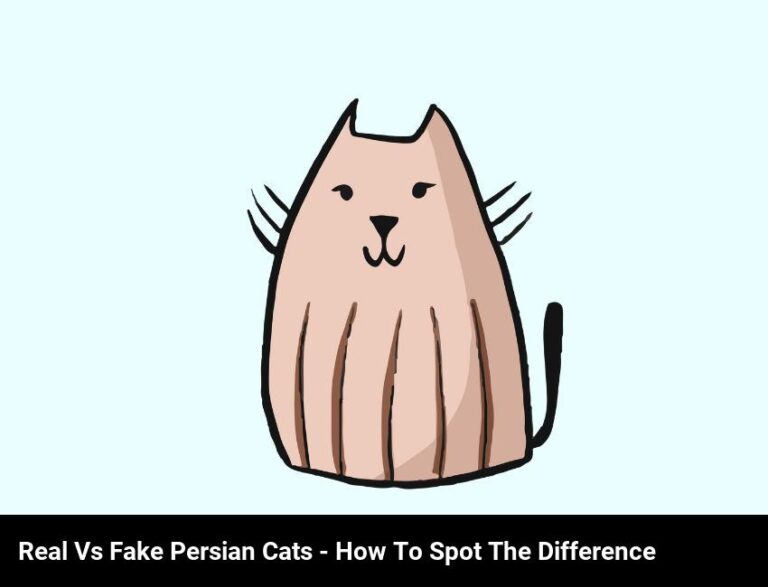Why Is My Persian Cat Refusing To Eat?
It may be that your Persian cat is refusing to eat due to an underlying health issue. It is best to take them to the vet to determine what may be causing the issue and how to best treat it.
Recently, I have noticed my Persian cat behaving differently – it refuses to eat. I began to worry, as I know cats are creatures of habit and this behavior isn’t normal for my furry companion. I started to research and discovered that cats refusing to eat is a common issue. I want to understand why my cat isn’t eating, and what I can do to help.
In this blog, I’ll be exploring why my Persian cat won’t eat and what I can do to help. I’ll look at the signs that indicate refusal to eat, potential causes and the health risks associated with a cat not eating. I’ll also discuss methods to entice my cat to eat and the long-term implications if it won’t eat. Finally, I’ll share what I have learnt in case other cat owners are struggling with the same issue.
Whether you are a first-time cat owner or an experienced one, I hope this blog will provide insight into why your cat isn’t eating and offer advice on how to fix the problem.
What signs indicate my cat is refusing to eat?
If your Persian Cat is refusing to eat, there are some signs you should look for. Firstly, if she is meowing more than usual, this could be a sign that she is not feeling well and has lost her appetite. Secondly, if she is not drinking enough water, this could be a sign of dehydration. Thirdly, if she is sleeping more than usual or not as active as she usually is, this could also be an indication that she is not feeling well. Lastly, if she has lost weight, this could be a sign of an underlying health issue that has caused her to stop eating. Paying attention to these signs can help you determine the underlying cause of your Persian Cat’s refusal to eat.
What could be causing my cat’s lack of appetite?
If your Persian cat has stopped eating, it could be caused by a few different things. First, your cat may not be feeling well. Cats can become ill just like people, so if your cat has suddenly lost its appetite, it may be time to take it to the vet. The vet will be able to check your cat for any illnesses or conditions that could be causing its lack of appetite. A vet can also provide tips on how to encourage your cat to eat.
Secondly, it could be that your Persian cat isn’t interested in the food you’re offering. Cats can be picky eaters, so it’s important to find something they like. Try different kinds of food to see what your cat likes. You could also try warming up the food or adding some treats or wet food to make it more appealing.
Lastly, it could be a behavioral issue. If your cat was recently adopted, it may not be used to the food you’re offering. Give the cat time to adjust to the new home and try offering the same food in different places to see if it will encourage the cat to eat.
If none of the above seem to be the cause of your cat’s lack of appetite, it’s best to take it to the vet. The vet can help you identify the source of the issue and provide advice on how to get your cat to eat again.
What are the potential health risks associated with a cat not eating?
If your Persian cat isn’t eating, it’s important to understand the potential health risks associated with this. If your cat is refusing to eat, it can put them at risk of becoming malnourished or suffering from organ failure. Malnutrition can lead to physical and psychological health issues, such as weakened immune systems, stunted growth, digestive problems, and weight loss.
Organ failure, which can be caused by a lack of nutrition, can lead to a number of serious health issues, including liver and kidney failure. This can be very dangerous and can even be fatal. It is also possible that your cat could become dehydrated if they are not eating, which can lead to a number of other health problems.
It is also important to consider that, if your cat is refusing to eat, they may also be in pain or feeling unwell. If this is the case, they may need to see a veterinarian to identify the issue and get proper medical treatment.
Overall, it is important to take your Persian cat’s lack of appetite seriously, as it can lead to a number of health risks and complications. If your cat is refusing to eat, it is best to take them to the vet to make sure there are no underlying health issues.
What should i do if my cat refuses to eat?
If your Persian cat refuses to eat, the first thing you should do is make sure they’re not in any pain or distress. Check for any lumps or bumps in the fur, and make sure their eyes, ears, and nose look normal. If everything appears to be in order, then it’s time to take a look at their environment and diet.
First, make sure your cat has plenty of clean, fresh water available throughout the day. Dehydration can quickly lead to a loss of appetite, so make sure they have enough to drink. You’ll also want to change your cat’s diet, ensuring they’re eating quality, nutrient-rich food. You may also want to try offering a variety of different flavors and textures to see if something appeals to them.
If these steps don’t help, it might be time to speak with your vet. They can provide advice and help determine if there’s an underlying issue, such as an infection or illness, that needs to be addressed. In some cases, a change in medication or diet may be necessary to get your Persian cat’s appetite back on track.
Remember, if your cat isn’t eating, it’s important to take action immediately. Don’t hesitate to reach out to your vet for advice and guidance.
What can i do to entice my cat to eat?
If your Persian cat is refusing to eat, it’s important to find out why. It could be due to a medical issue, so it’s always a good idea to get your cat checked by a vet. But if it’s more of a behavioral issue, there are a few things you can do to entice your cat to eat.
First, make sure you’re feeding your cat quality food. Nutrition is key for cats and if the food doesn’t have the right nutrients, your cat won’t want to eat it. Look for a high-quality kibble that’s made specifically for Persian cats.
Second, consider your cat’s environment. Is it too quiet? Too noisy? Too hot or cold? Cats need a comfortable space to eat and if the environment isn’t right, your cat may not be interested in eating.
Third, add some variety to your cat’s diet. Variety is the spice of life and cats need variety too! Try different types of kibble, wet food, and even treats.
Finally, make sure you’re spending quality time with your cat. Cats need love and affection, so make sure you’re giving your cat plenty of attention. Playing with your cat and giving them treats can be a great way to entice them to eat.
If you take the time to create the perfect environment for your cat and provide variety in their diet, you’ll be able to entice your Persian cat to eat. Just remember, if your cat continues to refuse to eat, it’s always a good idea to take them to the vet.
What are the long-term health implications for my cat if it continues to refuse to eat?
If your Persian cat is refusing to eat, it might seem like a minor issue now, but it can have long-term health implications if it continues. It’s important to get to the bottom of why your cat won’t eat and to take action to correct the issue as soon as possible.
The most serious long-term health implication of not eating is malnutrition. Nutritional deficiencies can lead to a host of health problems, including digestive issues, liver and kidney problems, and even anemia. Malnutrition can also weaken your cat’s immune system, making it more vulnerable to disease and infection.
Another serious health implication is dehydration. Cats can become dehydrated quickly when not eating, and this can lead to a number of health issues including kidney failure and urinary tract infections. Dehydration can also cause your cat to become lethargic and depressed.
Finally, persistent refusal to eat can also cause your cat to become overweight or obese due to the body storing fat as a result of not getting the nourishment it needs. This can lead to a number of health problems like diabetes and joint issues.
It’s important to get to the bottom of why your cat isn’t eating and to take action to correct the issue as soon as possible. If you’re not sure why your cat isn’t eating, it’s best to take them to the vet to rule out any underlying medical conditions. Once any medical conditions have been ruled out, you can look into dietary changes, environmental factors, or behavioral solutions to address the issue.
What should i do if i’m still having trouble getting my cat to eat?
If you’re still having difficulty getting your Persian cat to eat, don’t worry- it’s normal for cats to go through phases of being picky. There are a few things you can do to encourage your cat to eat.
Firstly, try to make meal times a pleasant experience. Use a calm, reassuring voice and be gentle when you’re feeding your cat. Also, make sure your cat is comfortable and not being disturbed by other pets or people.
Secondly, serve your cat’s food in an interesting way. Cats can be picky, so try to make their meals appealing by adding a variety of flavors and textures. You could also try serving their food at room temperature or warm it slightly in the microwave.
Thirdly, make sure you’re not giving your cat too many treats. Too many treats can fill your cat up and make them less likely to eat their regular meals.
Finally, if your cat isn’t eating enough, talk to your veterinarian. They can help you identify any underlying health issues that might be causing your cat’s loss of appetite.
With a few simple steps, you can help your Persian cat feel comfortable and confident enough to eat their meals.
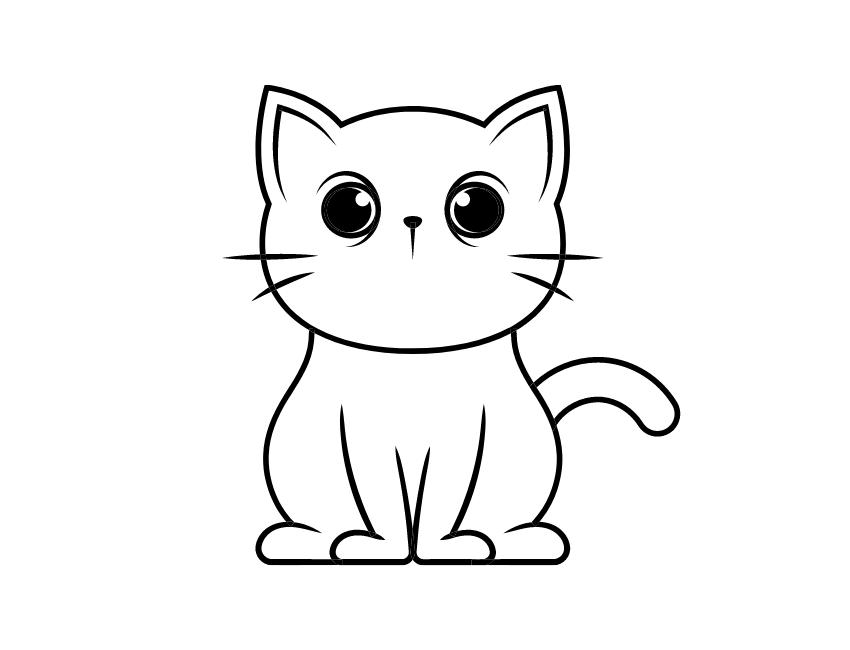
Frequently Asked Questions
Could stress be a factor in your persian cat’s refusal to eat?
Yes, stress could be a factor in your Persian cat’s refusal to eat. It is important to consider the environment in which your cat lives and any changes that could have been made recently. Stressful events, such as moving to a new home or introduction of a new pet, can cause a Persian cat to become anxious and lose their appetite. If your cat is showing signs of stress, consult your veterinarian for advice.
Is there a way to make sure your persian cat is getting the necessary nutrients even when it isn’t eating?
Yes, there are ways to make sure your Persian cat is getting the necessary nutrients even when it isn’t eating. Talk to your veterinarian about what types of supplements and vitamins can help ensure your cat is getting all the nutrients they need to stay healthy. Additionally, you can try feeding your cat small meals throughout the day, as well as offering fresh, wet foods that are high in protein.
Could there be any underlying medical conditions that are causing your persian cat’s lack of appetite?
Yes, it is possible that your Persian cat’s lack of appetite is due to an underlying medical condition. You should visit a veterinarian to have your cat examined, since they will be able to determine if any medical conditions are present and provide the appropriate treatment.
Could changes in environment or diet be a factor in your persian cat’s refusal to eat?
Yes, changes in environment or diet could be a factor in your Persian cat’s refusal to eat. Consider if there have been any recent changes to the cat’s living environment, or if you’ve introduced a new type of food. If so, try returning to their old environment or diet and see if that helps.

